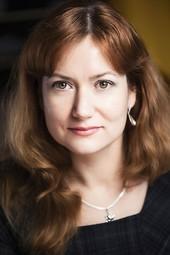The full-scale Russian-Ukrainian war has caused shocking changes in all spheres of society and in every individual. Religion as a way of spiritual comprehension of the world and the Church, both as a pastor and as a social institution, are no exception. Under the influence of literally constant stress, public attitudes toward religion, expectations of the church, and assessments of its role in the life of society, the state, and the individual have changed. The nature and depth of religiosity, the need for communication with fellow believers and pastors have changed.
Accordingly, the priorities and emphases in the Church's activities have changed. Without abandoning their pastoral activities, literally all churches and religious organizations in Ukraine have significantly intensified their social (charitable) activities.
Since 2000 Razumkov Centre has been permanently monitoring the church and religious situation in Ukraine, including sociological monitoring of the state and trends of religious commitment in Ukrainian society, public confidence in the Church as a social institute, as well as the public opinion on the role of religion and the Church in civic life, relations between the state and churches, among different churches and confessions.
The latest national-wide survey “War and the Church. Church and Religious Situation in Ukraine 2022” was conducted by the Razumkov Centre Sociological Service in November, 2022, with support from Konrad Adenauer Stiftung Ukraine and comprised a poll of Ukrainian citizens with a sample representing the adult population of the Ukrainian territories controlled by the Ukrainian authorities (the poll was not held in temporarily occupied territories or the territories where hostilities were taking place), as well as in online focus groups.
During this latest survey, in addition to questions traditionally asked in course of monitoring, much attention was paid to public assessments of the Church response to the problems and challenges of the day (including its activity in the conditions of the Russian aggression against Ukraine), citizens’ ideas of the role and essence of the social mission of religious organisations, motives for commitment of religious rites.
In this paper we offer you the results of the sociological survey and their comparison with the data of similar surveys of the previous years. Comparative analysis of the survey results makes it possible to briefly outline the trends of religious commitment of Ukrainian society during the past 20 years and to draw the following conclusions.



